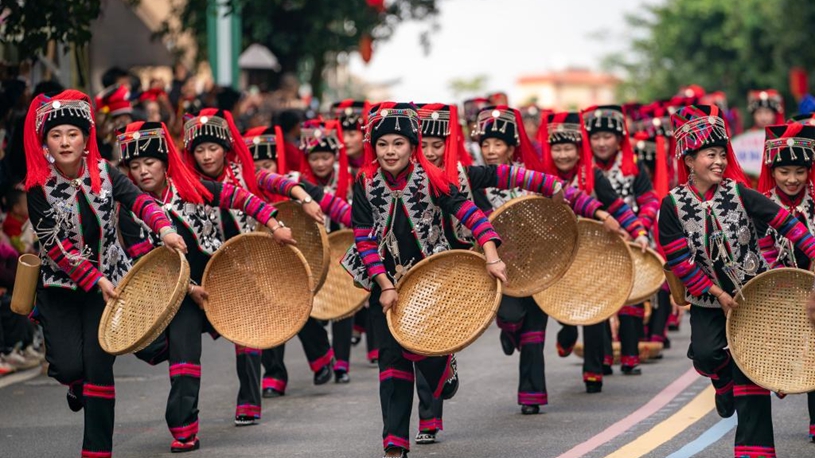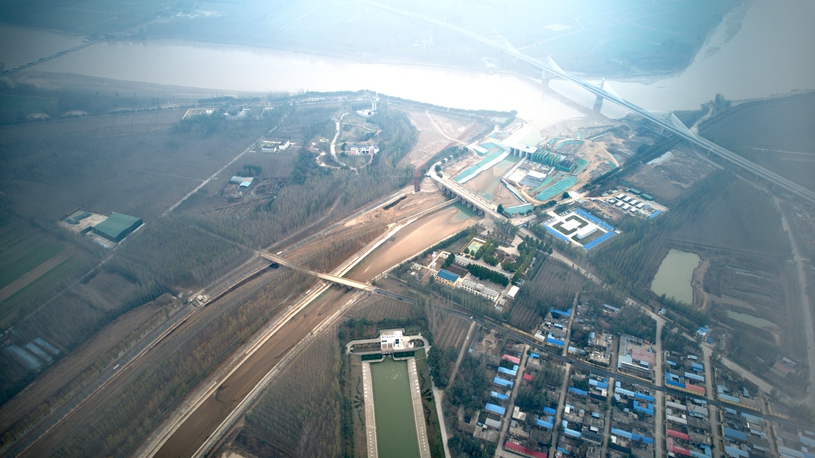HEFEI, Nov. 22 (Xinhua) -- Bao Zheng, also known as Bao Gong, is a household name in China for his unwavering commitment to justice, as well as his incorruptibility and dedication to upholding the rule of law. The influence of the legendary judge, who lived from 999 to 1062, can still be seen in China today, particularly in his home province of Anhui in east China.
Born in Hefei, the capital of Anhui, Bao is considered one of the most important Chinese sages. People commonly refer to him as "Justice Bao," thanks to his expert handling of criminal cases, his fearlessness in giving straightforward advice, and his deep resentment of evil deeds. Folk tales, traditional operas, films and television series through history have disseminated his legend.
Lectures on the life and principles of the renowned judge are organized regularly in Bao Gong Park in Hefei, where Bao's tomb is located. These lectures serve to educate the public -- especially civil servants -- on the values of righteousness and the importance of a clean government. The lectures, which are part of courses on clean and ethical culture, are a notable initiative launched by Hefei's discipline inspection commission.
"I find myself on this special platform talking about the stories of Bao Gong almost every month," said Pei Bin, a professor at the Party school of the Hefei Municipal Committee of the Communist Party of China.
Historical records note that before Bao's time in office, individuals were unable to file lawsuits directly with government. Bao implemented a crucial reform upon assuming office in Bianjing, known today as Kaifeng, in Henan Province. He revised the existing law, enabling people to submit information and statements for each case directly. This change effectively prevented officials from accepting bribes and falsifying information related to lawsuits.
During his administration, the frequent flooding of the Huimin River within the city of Bianjing was a significant problem, bringing hardship to the public. With no fear of those in power or the aristocracy, he vigorously dismantled enclosures and cleared waterways to alleviate these struggles. His actions have become inspiring tales of benevolence and courage.
Initially, the emperor wanted to bestow half of Luzhou City, which is now known as Hefei, upon Bao for his contributions to the country, but Bao repeatedly declined this offer. In the end, the emperor's insistence won out and Bao agreed to accept a portion of the city's defensive moat.
People were puzzled by his decision, but Bao had his own considerations. He believed that if his descendants ever failed to obtain official positions through imperial civil service examinations, they could rely on his section of the river to make a living by raising fish and growing lotus roots.
In the year 1062, Bao passed away due to illness. In his will, he stated that if his descendants were to engage in corruption, embezzlement or other wrongful acts while serving in government positions, they would not be allowed to return to their ancestral home, nor would they be allowed to be buried in the family graveyard.
Bao now rests eternally by the Baohe River in Hefei, which was named after him. Bao Gong Park was established in his memory, welcoming over 1 million visitors annually, including descendants of the Bao family from Hong Kong, Macao and Taiwan, as well as other countries like Singapore and Thailand, along with followers of Bao's principles and ideals.
"Bao Gong has become the 'spokesperson' for cultural integrity in our city. The outstanding Chinese moral qualities of loyalty, filial piety, integrity and love are integrated into our economic, social and cultural development, as well as in the entire process of fighting corruption and advocating for integrity," Pei said.
Fairness and justice are universal values shared by all humanity. Bao Gong represents not only China's commitment to these values but also serves as a symbol of these values for the world. Stories and the spirit of Bao have and will continue to inspire movies, operas, books and more.
Since 2010, a series of six comic books featuring Bao Gong have been published in France, the result of a collaboration between a Chinese cartoonist and a French scriptwriter. The comics quickly became a hit in Europe and were later translated into a number of languages, including Dutch, Italian, English and German.
"The tales of Bao Gong are seemingly boundless, and the essence of his character is destined to endure eternally," Pei said. ■












